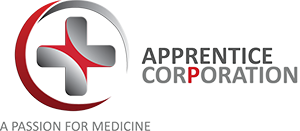The healthcare landscape is vast and complex. It can be difficult for college students and recent graduates to get a handle on exactly how to break in and land that first entry-level job. But with a good overview of what types of roles can serve as entrances into the industry, graduates can streamline their way into a satisfying career in healthcare.
Some of the Most Common Healthcare Entry Jobs for Graduates
There are multiple routes into the healthcare industry. These can vary widely by type and amount of schooling required; whether or not they require any kind of license or certification; and natural strengths and aptitudes needed to excel in the role.
Here are a few of the most common healthcare entry job types that are worth considering if you’d like to pursue a career in health:
Registered Nurse (RN)
What they do: RN’s are licensed nurses. They operate in a wide variety of health provision settings from hospitals to specialized outpatient clinics. RN’s often work within a team of medical professionals that provide a wide range of care types.
How to become one: It’s possible to pursue an RN position via a few different pathways. RN licenses can be obtained after completing a two-year Associate’s Degree or a dedicated program through a community or technical college. Alternatively, some students choose a Bachelor of Science in Nursing degree, which can sometimes increase ease of obtaining a position and earning power. Of the approximately 155,000 RN students that graduate and enter the workforce each year, many of them complete online ABSN programs. Accelerated Bachelor of Science in Nursing (ABSN) programs can fast-track the process of becoming a registered nurse, often requiring just 12 to 18 months as opposed to more traditional four-year programs.
After completing your degree program of choice, you’ll need to pass the RN licensing exam to receive your license before being eligible to practice. Preparation for this is usually included or aided by whatever degree program you choose prior to taking the exam.
Healthcare Administrator
What they do: Behind care administration churns a constant stream of logistical and administrative tasks. Healthcare administrators support and facilitate care provision, performing operations that are vital to making healthcare provision possible. These tasks include scheduling, invoicing, staff management, payroll, compliance, and more.
How to become one: Unlike many other entry-level roles in healthcare, most healthcare administrator positions do not require a license or certification beyond a bachelor’s degree. Getting your degree in Healthcare Administration specifically will aid you in looking more qualified and being more likely to land that first role. However, other degrees are often acceptable for pursuing many positions of this type.
Occupational Therapy Assistant
What they do: Occupational Therapy Assistants (OTA’s) provide a specific set of supports for the patients they serve. Occupational Therapy helps individuals strengthen or recover physical skills and strengths that they need to function, live their lives, and perform their work. Occupational Therapists often help people who are recovering from illnesses or injuries that have cost them their mobility, strength, endurance, or independence. OTA’s do much of the hands-on work required in OT sessions, from helping individuals perform stretches and exercises to teaching them how to use equipment.
How to become one: To become an OTA you’ll be required to complete a designated OTA degree through a technical, community, or undergraduate institution and complete a licensing exam facilitated by the National Board for Certification in Occupational Therapy. OTA programs can range in length but can be completed in roughly two years.
Medical Laboratory Technician
What they do: Medical Laboratory Technicians (MLT’s) are responsible for analyzing and processing medical samples of various kinds. They operate sophisticated equipment and usually work in dedicated facilities, processing either ranges of sample types or specializing in specific types of diagnostic and analytical procedures.
How to become one: Becoming an MLT requires a proprietary degree as well – a Medical Lab Technician Degree or similar. These programs can be offered through technical or community colleges and can often be completed in roughly one year. Requirements may vary slightly per state, so check on state-specific expectations in the place(s) in which you want to practice to make sure you complete what’s necessary before pursuing a position.
Tips for Taking Your Next Step
With a basic understanding of a few options for entry-level positions within the medical field, you’re more equipped to advance your decision-making and narrow down the direction that best fits your interests, unique life situation, and career goals. As you continue this process, remember these final few tips:
Don’t let this be the end of your research journey. Delve deeper into the positions that appeal to you. Understand them and weigh them against your strengths, interests, and aspirations.
Know yourself. Know your skills, tendencies, and weaknesses. Knowing what you bring to the table and the things that give you life (as well as the tasks or responsibilities that definitely don’t) will help you enter a career where you can thrive.
Take stock of your available resources. Each of these career directions take a different mix of resources to be able to complete well. Each will cost you valuable time, energy, and money. It’s important to take a good look at how these may cost and stretch you. Do you have the time and resources it will take to complete the steps required? This is an important consideration for anyone aspiring to a healthcare career.
Insider knowledge and a deeper understanding of entry-level opportunities in healthcare will help you supercharge your entrance into a satisfying and rewarding career path.

